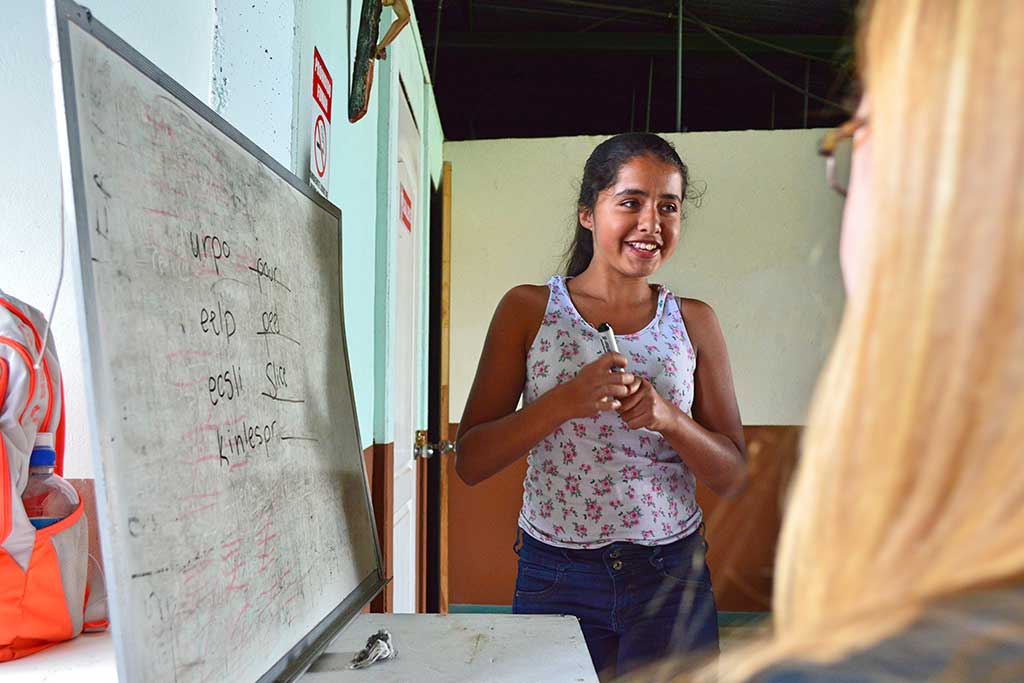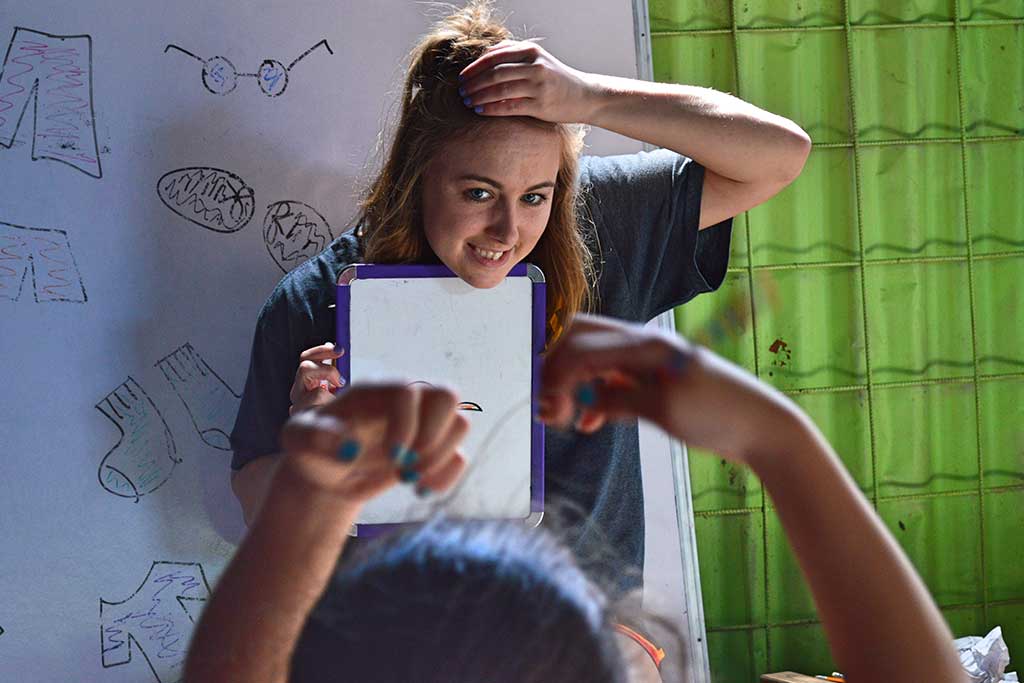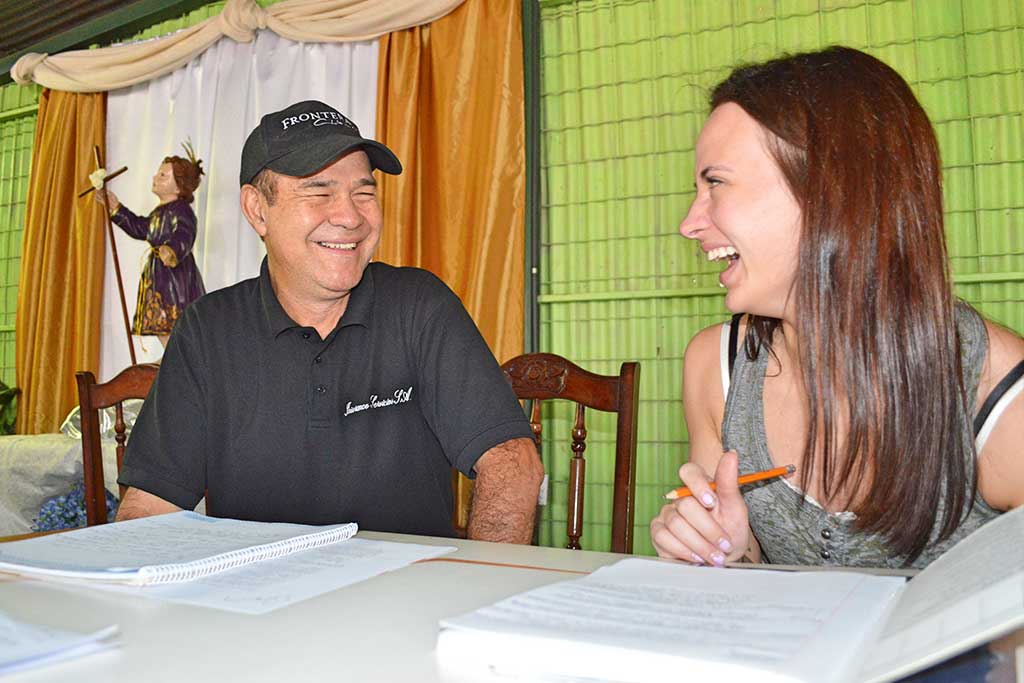My parents are big believers in the critical theory hypothesis. So, from a very young age, they had me speaking in both English and Spanish. I grew up attending a multilingual charter school and learning in different languages quickly became second nature for me. But as I’ve gotten older, I have begun to realize that what was simply my parents’ expectation of me is an unattainable dream for people all over the world.
Knowing more than one language makes you more marketable professionally, extends the list of universities you can attend, and allows you to communicate with a larger and more diverse community. Each language you learn can lead to its own distinct set of opportunities. However, there’s an international demand for one language in particular—a language that I’ve been using every day at the dinner table.
English opens doors. Numerous people have a desire to learn English whether it’s for work, school, or travel. English is especially sought after in many developing countries. In regions with heavy tourist traffic, speaking English is a valuable business tool. Other individuals hope to expand their horizons beyond their local communities: conducting research or developing business connections on a more dynamic, global scale.

However, few people are handed the opportunity to be educated in more than one language. That is why I decided to explore ESL volunteer programs abroad. I found Máximo Nivel online and was excited by their English teaching volunteer options in Latin America. I chose their site in San José, Costa Rica, and set off to see if I could actually teach one of the languages I speak.
There is a high level of exposure to media and culture from English-speaking countries in San José. My students enjoyed using the American political climate to poke fun at me, and the city is home to McDonald’s, Papa John’s and Taco Bell. And yet, the reason that Costa Rica is so heavily influenced by English speakers is the same reason that so many students are seeking to learn the language.
Costa Rica is a tropical, tourist hub. And for better or worse, the economy relies on the tourism industry. A lot of students want to improve their English simply to create a better life for themselves and their families. However, locals often don’t have access to the quality instruction they need to learn English as a second language.
Though ESL lessons are sometimes offered in the public school system, their content is not formalized or comprehensive. More serious students usually want to take classes at private institutes, but this is not a viable option for everybody. Private schools can be expensive and are therefore out of reach for most average earners. That’s why I wanted to be part of providing classes that are in reach for typical Costa Ricans.

Even though I’d never been on the teaching side of a classroom environment, I knew that I loved languages, and I wanted to make English more accessible to people who really wanted to learn it. What I lacked in experience I made up for in enthusiasm, and the Máximo ESL crash course together with the Costa Rica team were there to patiently guide me through my first few days of teaching.
I am fresh out of high school, and some of my adult students could have been my parents. At first, I was nervous, and I know I talked way more than I was supposed to. I’m sure they only understood every sixth word. But being initially challenged by teaching is part of what made my progress meaningful. Volunteering abroad was not only an act of community service; it was also a huge opportunity for me to try a new trade.
I am not yet sure what I want to do professionally, and I loved trying my hand at teaching. ESL instruction was also different from other subjects because I was educating students in the language they were learning. I had to think about how I presented every little thing because direct instruction was basically obsolete. Limiting my speaking and encouraging student talk time was not necessarily intuitive, so I was very grateful for my introductory ESL training.
The academic staff helped me become more confident in both my knowledge of English and how to implement teaching strategies. I also had access to numerous resources for lesson planning that were appropriate for various levels and geared toward different grammar topics. Máximo’s volunteer program turned out to be an excellent platform for purposeful travel.

I taught adults and children in a community center setting. And though this was likely less formal than a language institute, it was evident that my students really wanted to learn. I had so much fun connecting with them using the very words they were trying to grasp. Every moment was an opportunity for absorbing new language and laughing together.
All my students were as appreciative of the opportunity to learn as I was of the opportunity to serve their community. I hope that educational organizations in Costa Rica continue to make English classes available to a wider sector of society. I’m so glad to have boarded that flight to San José. The trip was beneficial to both my students and I. While exploring my future career options, I was helping them expand theirs.
